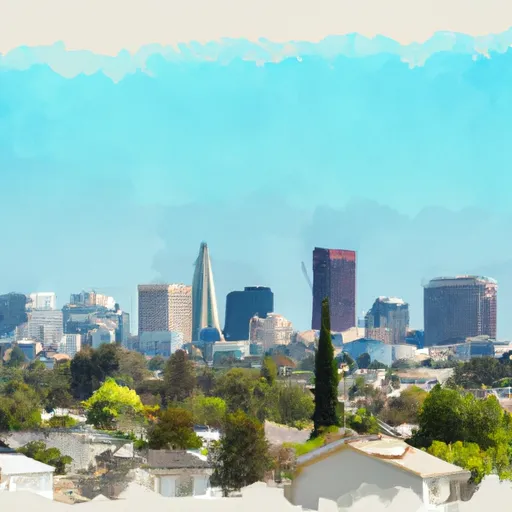-
 Snoflo Premium
Snoflo Premium
Get unlimited access to all our content
With no Ad interruptions! - Start Your Free Trial Login with existing account
Washington
Eden Index
Climate
8.8
•
Recreation
8.5
•
Community
1.2
•
Safeguard
6.8/10

Washington, located in the Pacific Northwest, experiences a diverse climate due to its varying topography. The western region enjoys a mild, wet climate, influenced by the Pacific Ocean, with cool summers and abundant rainfall. The eastern part has a drier, continental climate, with hot summers and cold winters. The state's hydrology is characterized by numerous rivers, including the Columbia and Snake Rivers, providing ample water resources for agriculture and hydroelectric power generation. Washington is also home to the Cascade Range, featuring majestic peaks and glaciers, and the Olympic Mountains, offering unique ecosystems.
California, known for its diverse geography, has a Mediterranean climate. The state experiences mild, wet winters and hot, dry summers, with variations based on elevation and proximity to the coast. California's hydrology is defined by the Sierra Nevada Mountains and the Central Valley. The Sierra Nevada Mountains provide a significant source of freshwater, while the Central Valley is an agricultural hub. California boasts numerous outdoor recreation opportunities, including hiking and camping in national parks like Yosemite and Joshua Tree, surfing along the coast, skiing in the Sierra Nevada, and exploring the Mojave Desert.
Overall, both Washington and California offer a wide range of outdoor activities, thanks to their unique climates and abundant natural resources.
What is the Eden Index?
The Snoflo Eden Index serves as a comprehensive rating system for regions, evaluating their desirability through a holistic assessment of climate health, outdoor recreation opportunities, and natural disaster risk, acknowledging the profound impact of these factors on livability and well-being.
Climate Health Indicator (CHI): 8.8
Washington receives approximately
1646mm of rain per year,
with humidity levels near 63%
and air temperatures averaging around
12°C.
Washington has a plant hardyness factor of
8, meaning
plants and agriculture in this region tend to thrive here all year round.
By considering the ideal temperature range, reliable water supplies, clean air, and stable seasonal rain or snowpacks, the Climate Health Indicator (CHI) underscores the significance of a healthy climate as the foundation for quality living.
A healthy climate is paramount for ensuring a high quality of life and livability in a region, fostering both physical well-being and environmental harmony. This can be characterized by ideal temperatures, reliable access to water supplies, clean air, and consistent seasonal rain or snowpacks.
Weather Forecast
Streamflow Conditions
Lower Sacramento
Area Rivers
Lower Sacramento
Snowpack Depths
Lower Sacramento
Reservoir Storage Capacity
Lower Sacramento
Groundwater Levels
Recreational Opportunity Index (ROI): 8.5
The Recreational Opportunity Index (ROI) recognizes the value of outdoor recreational options, such as parks, hiking trails, camping sites, and fishing spots, while acknowledging that climate plays a pivotal role in ensuring the comfort and consistency of these experiences.
Access to outdoor recreational opportunities, encompassing activities such as parks, hiking, camping, and fishing, is crucial for overall well-being, and the climate plays a pivotal role in enabling and enhancing these experiences, ensuring that individuals can engage in nature-based activities comfortably and consistently.
Camping Areas
| Campground | Campsites | Reservations | Toilets | Showers | Elevation |
|---|---|---|---|---|---|
| Shirttail | 30 | 3,943 ft | |||
| Donner Summit Area - Lake Spaulding | 25 | 5,045 ft | |||
| Bear River County Park | 23 | 1,749 ft | |||
| Dru Barner | 47 | 3,237 ft | |||
| Lake Spaulding | 25 | 5,048 ft | |||
| Skillman Horse Camp | None | 4,638 ft | |||
| Big Reservoir | 19 | 4,161 ft | |||
| Giant Gap | 35 | 3,686 ft | |||
| Mineral Bar - Auburn State Rec Area | 18 | 1,167 ft | |||
| Rucky A Chucky - Auburn State Rec Area | 5 | 723 ft |
Nearby Fishing
Nearby Ski Areas
Catastrophe Safeguard Index (CSI):
The Catastrophe Safeguard Index (CSI) recognizes that natural disaster risk, encompassing floods, fires, hurricanes, and tornadoes, can drastically affect safety and the overall appeal of an area.
The level of natural disaster risk in a region significantly affects safety and the overall livability, with climate change amplifying these risks by potentially increasing the frequency and intensity of events like floods, fires, hurricanes, and tornadoes, thereby posing substantial challenges to community resilience and well-being.
Community Resilience Indicator (CRI): 1.2
The Community Resilience Indicator (CRI) recognizes that education, healthcare, and socioeconomics are crucial to the well-being of a region. The CRI acknowledges the profound impact of these elements on residents' overall quality of life. By evaluating educational resources, healthcare accessibility, and economic inclusivity, the index captures the essential aspects that contribute to a thriving community, fostering resident satisfaction, equity, and social cohesion.

